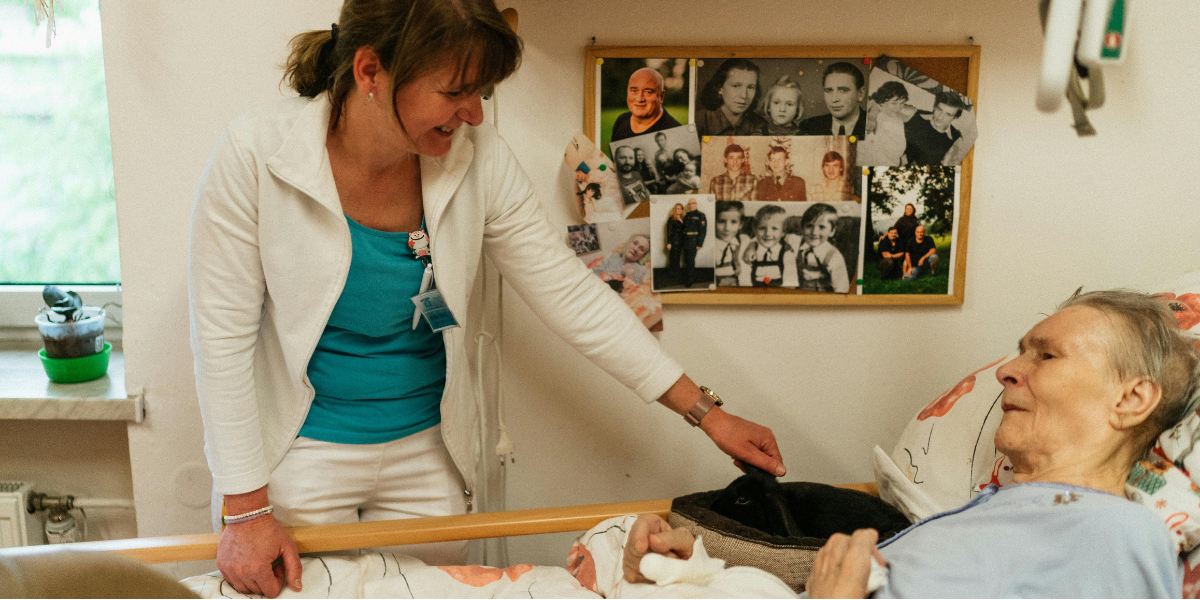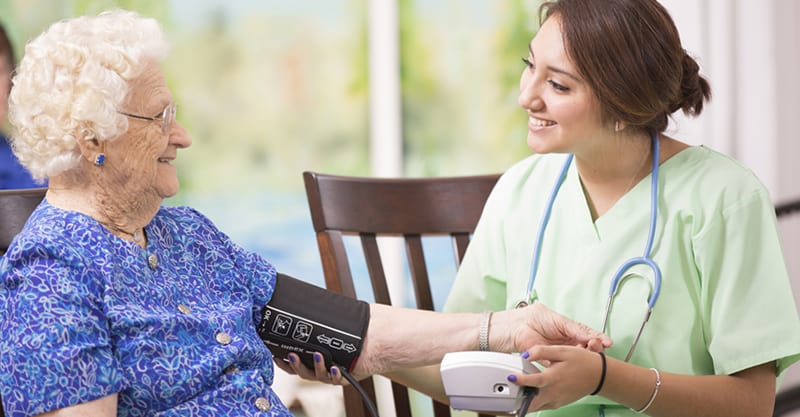When a loved one starts needing an extra support, choosing the right type of care can feel overwhelming. Two of the most common terms you will encounter are personal care and home care. They might sound similar and both happen in the comfort of your home, but they are designed to meet different needs. Understanding the difference between personal care and home care can help you make an informed decision – one that ensures your loved one stays comfortable, safe, and independent for as long as possible.
Table of Contents
TogglePersonal and Home Care Sector Growth in New Zealand (2025)
Workforce, service-hours, and business numbers in the personal and home care sector are increasing,
reflecting the country’s ageing population and evolving policy direction.
In 2025, the New Zealand market for personal care is projected to generate approximately
US$693.6 million, which equates to around US$130.60 per person, according to
Statista.
In this home care vs personal care article, we will talk about the most important differences between these two types of aged care services so you can be better familiarized with aged care services in general and decide which services best suit your needs.
What is Personal Care?

Personal care focuses on helping individuals with hands on daily living activities – the kinds of personal tasks most of us do everyday but may become difficult due to age, injury, or illness.
These tasks are often called Activities of Daily Living (ADLs) and include:
- Bathing and showering: Assistance with personal hygiene and grooming.
- Dressing and grooming: Help choosing and putting on clothes.
- Tolleting and constinence: Support for bathroom needs or incontinence care.
- Mobility Assistance: Helping with walking, transferring from the bed to chair, etc,
- Eating and Drinking: Preparing meals or helping with feeding if necessary.
- Medication reminders: Ensuring medications are taken on time.
Personal care services are often provided by trained caregivers, certified nursing assistants, or home health aides who are skilled in dignity, safety, and comfort during these private activities.
Why Personal Care Matters?
Personal Care goes beyond physical assistance – it’s about maintaining a person’s dignity, independence, and self-esteem. Whether someone needs full-time help or just a few hours, personalized support can make everyday life more manageable and fulfilling.
What is Home Care?

Home care, sometimes called companion care, focuses on helping with non-medical, everyday tasks and providing emotional support. It’s perfect for seniors and individuals who are still mostly independent but could use some extra help to stay comfortable at home.
Examples of Home Care Services:
- Light housekeeping: Cleaning, laundry, and tidying living spaces.
- Meal preparation: Planning and cooking nutritious meals.
- Errands and grocery shopping: Running daily errands or picking up prescriptions.
- Transportation: Getting to appointments, social events, or shopping trips.
- Companionship: Providing conversation, social interaction, and emotional connection.
Home care is usually provided by trained caregivers or companions — people who may not have medical certification but are experienced in offering support, friendship, and everyday assistance.
Why Home Care Matters?
Home care helps individuals stay socially engaged and maintain their routines. For families, it offers peace of mind knowing someone is checking in, helping out, and keeping their loved one company.
Personal Care vs. Home Care: The Key Differences
Here’s a quick comparison table to help clarify the main distinctions between personal care and home care:
| Aspect | Personal Care | Home Care |
| Focus | Hands-on assistance with daily living activities | Household support and companionship |
| Tasks Include | Bathing, dressing, toileting, mobility | Cooking, cleaning, errands, social support |
| Level of Training | Certified caregiver (CNA or home health aide) | Non-medical caregiver or companion |
| Hands-On Help | Yes | No |
| Best For | Seniors or individuals who need physical assistance | Independent individuals needing light help and companionship |
How to Choose the Right Type of Care?

Selecting the right care service depends on your loved one’s needs, preferences, and level of independence. Here are a few questions to consider:
What kind of help is needed most?
- If your loved one struggles with personal tasks like bathing or dressing, personal care is appropriate.
- If they just need help with chores, errands, or companionship, home care may be enough.
Are there medical or mobility concerns?
Personal care workers are trained to safely assist with transfers, mobility, and certain health-related routines.
How much independence does your loved one want to maintain?
Home care can be less intrusive and more focused on companionship and support.
What’s your budget or insurance coverage?
- Personal care can sometimes cost more due to required training and certification.
- Some long-term care insurance plans may cover both types of services.
The Benefits of In-Home Support
Whether you choose personal care, home care, or a blend of both, in-home support provides tremendous benefits:
- Independence: Seniors can remain in familiar surroundings.
- Comfort: Care is tailored to personal preferences and routines.
- Safety: Reduced risk of falls, isolation, or neglect.
- Peace of Mind: Families can rest easier knowing loved ones are supported.
- Companionship: Regular social interaction helps prevent loneliness.
In short, in-home care helps people live well — not just longer.
Frequently Asked Questions (FAQs)
1. Can a caregiver provide both personal care and home care?
Yes, many caregivers and agencies offer combined care plans. For example, a caregiver might help with morning hygiene (personal care) and spend the afternoon assisting with meals and errands (home care).
2. Is personal care considered medical care?
No. Personal care is non-medical, though it often involves more hands-on assistance than general home care. Medical tasks, like administering medications or wound care, require a licensed nurse or medical professional.
3. Does insurance cover personal or home care services?
Coverage depends on your insurance or state program. Medicare usually doesn’t cover non-medical care, but Medicaid, veteran benefits, or long-term care insurance may help with costs.
4. How do I know if my loved one needs personal care?
If your loved one is having trouble with daily activities like bathing, dressing, or mobility, it’s a sign they could benefit from personal care services. A professional care assessment can help determine specific needs.
5. What if my loved one just needs companionship?
If loneliness or isolation is the main concern, home care or companion care is often the best choice. It provides conversation, social engagement, and emotional support.
Conclusion
Both personal care and home care play vital roles in helping people live comfortably and safely at home. Personal care offers hands-on support for physical needs and daily routines. Home care focuses on companionship, household help, and maintaining independence. By understanding the difference — and possibly combining both — you can create a customized care plan that truly supports your loved one’s well-being.
Need help deciding between personal care and home care? You can choose your care service from Clean Bees – the best in care giver in Auckland. Our compassionate team will help you design the perfect plan for your loved one’s comfort and independence.













